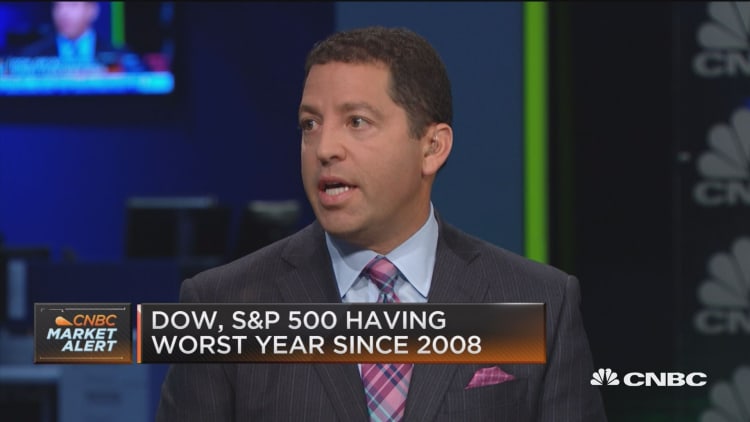
The U.S. economy is at risk of slowing down no matter what the Federal Reserve decides to do with interest rates because pressure from the global economy will remain, United Services Automobile Association's Wasif Latif told CNBC on Monday.
Even if Chairman Jerome Powell decides this week against one more rate hike, Latif, USAA's head of global multi-assets, warns more challenges will follow a "temporary reprieve."
"Globally the world is slowing down, we just haven't slowed down as much," he said on "Power Lunch." "So there's a risk that we slow down as well."
Investors worry that a fourth interest rate increase in 2018 would be a burden on stocks and the economy. The three major indexes all opened in correction territory and closed down more than 2 percent Monday. The finished at 2,545.94 to set a new 52-week low.
But Latif argues that a potential December hike is "more or less baked in." The Fed has forecast three hikes in 2019. Traders will learn if the central bank changes course on a rate path on Wednesday.
"It depends on what the message is after the hike. If it's a message just like it was in early 2016, we could be off to the races again and enjoy a value-led rally like we saw in 2016," Latif said. "If not, if they stick to their guns and they're saying that 'we're going to continue to raise,' then there's a continued risk of volatility."
In international markets, data from Europe and China are showing signs of slowdown in those economies. While the consumers and jobs numbers say the U.S. economy is still strong, Latif noted that manufacturing numbers softened because corporations have taken a "cautionary approach."
New York manufacturers reported Monday that business expansion is slower than expected in December. The Empire State Manufacturing Survey's general business conditions index, aggregated by the Federal Reserve Bank of New York, is 10.9, which is nearly half of the 20.6 print economists expected in a Refinitiv poll.
The U.S. economy is prone to a butterfly effect because the world economies are intertwined, Latif said.
"There's a lot of connectivity in the world and because of that we can't avoid a slowdown if the rest of the world is continuing to slow down. So central bank tightening does become really important, so we need that outlet," he said.


